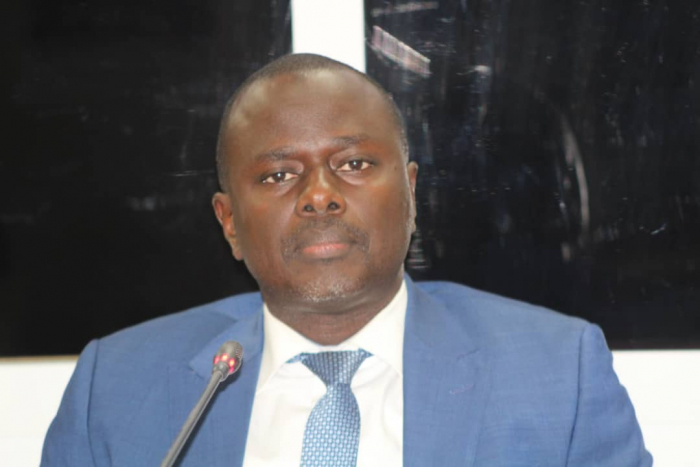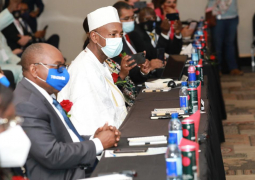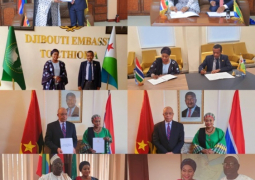
Marena appeared to explain how the justice sector enabled Jammeh to violate the rights of Gambians and laws that were often used to eliminate the former president's opponents.
Asked whether the legislation was enacted extensively but implemented for Jammeh's own ends, the witness in response said while at the Ministry of Justice, there were three notoriety legislations that were mainly used against Public Servants.
“However, these were not made by Jammeh and one of them was the Criminal Code and Giving False Information to a Public Servant, Abuse of Office, Negligent of Officials duty and the Economic Crime Decree.”
He said the Decree was an AFPRC Decree of 1994. Faal then asked him to explain why that Decree was still in the law books. He said all the AFPRC Decrees were formed to be part of the laws of the Gambia and were incorporated in the Constitution.
Asked to explain how whistleblowers were treated under Yahya Jammeh, he said what was unfortunate about those people was, if there was nothing to link with that person, the person will be subjected to police investigations, which will eventually slap them with the charges of false information.
However, he said if such persons give certain information and Yahya Jammeh is not happy with it, the individual will face the false information charge.
“It was all based on his whims and caprices,” he said.
Mr. Marena testified that one of the examples of whistleblowers was the case of former Minister of Justice, Lamin Jobarteh, Pa Harry Jammeh and Njogu Bah, former secretary general.
“Apart from the right violations it had several impacts on the public because it made people reluctant to report certain things and sat on their constitutional right to petition the president. People were afraid to provide information because they did not know what the consequences would be.”
On the issue of negligence by government officials, he said even a minor mistake on administrative lapses, someone faced charges.
“Some lawyers saw the charge of false information as a defective charge as the president was not part of the Public Service and therefore was not a “public servant."
Further testifying, he said Jammeh sharpened the weapon by replacing the word of Public Servant to 'Public Official' because under the Constitution, the President was not a Public Servant but a Public Official.
After the Jammeh regime, the main thing was to change the Criminal Procedure Code and task certain Gambian lawyers led by Senior Counsel, Antouman Gaye to make sure that the laws were within international standards and had since been sent to the National Assembly.
For the Economic Crimes Decree, Marena said the invention behind the Decree was to deal with people who sabotage the economy or cause economic losses in the Public Service.
On the application of the law to punish people, Marena indicated that the Decree provides a trial at the High Court and if they wanted to deny bail, they would charge the person at the Magistrates Court.
Read Other Articles In Headlines

Gambia participates in 1st regional confab on Strengthening Brand Africain Namibia
Jun 24, 2021, 11:28 AM



